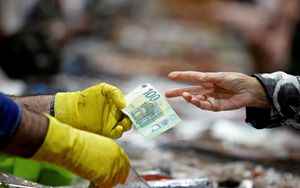(Tiper Stock Exchange) – The Parliamentary Budget Office confirms its estimation on the GDP 2023 to 0.6 percent and marginally revised upwards that for 2024 to 1.4 percent.
“However – reports the IPB – the scenario is weighed down by various elements of uncertainty, above all of an international nature, starting with the war between Russia and Ukraine”. In 2022, reads the note on the economic situation in February, Italian GDP grew by half a percentage point in the summer compared to the second quarter, to then drop by 0.1 percent between October and December. The level of activity reached values almost two percentage points higher than those at the end of 2019, more than in Germany and France. From last year’s overall figure, the 2023 GDP inherits a boost of 0.4 percentage points.
For the time being, although the conflict continues, energy commodity prices are declining. At the end of January, natural gas prices returned to the values of September 2021, around 55 euro/MWh, after the maximum reached at the end of August 2022, equal to almost 350. The downsizing was possible thanks to the diversification of sources and the climate particularly mild recorded in autumn, factors that allowed European countries to draw on stocks less than in the past.
With energy prices starting to normalize, theinflation peaked on both sides of the Atlantic: in the United States in June (at 9.0 per cent) and in the euro area in October (at 10.6 per cent). The rate fell to 6.5 per cent in December in the United States and to 8.5 per cent in January in the euro area and now inflation expectations appear to have stabilized at between 2 and 2.5 per cent in both the US and the Eurozone.
The UpB also points out that after the spring leap (2.5 per cent), private consumption grew at the same rate in the third quarter as well. The increase was mainly financed by savings, since purchasing power was little more than stagnant; the increase in nominal incomes (1.9 per cent) was in fact largely eroded by that in prices (1.6 per cent). The erosion of purchasing power weighed on household consumption especially in the autumn.
PBO forecasts on the Italian economy – Domestic demand drives Italian economic activity. In the average of 2023 and of
2024 household spending is expected to grow by about one percentage point, albeit slowing down compared to the previous two years due to the loss of purchasing power induced by inflation; the savings rate should continue its gradual decline from the peaks reached in 2020.
Even for the investments a slowdown is estimated (to an average of 2.7 per cent in the two-year period), less pronounced for spending on construction (3.2 per cent) than for machinery and equipment (2.3 per cent).
For the exports, which strongly supported economic activity last year, the dynamics would decrease, aligning with that of international trade, therefore with substantially unchanged foreign market shares of our companies. An even more marked deceleration is expected for imports. How much to employment, it is expected to grow by 0.5 percent this year, a pace that is expected to double in 2024, just below that of economic activity.
Finally, it is expected a gradual decline in inflation for the easing of tensions on the commodity markets (energy and non-energy). However, the dynamics of prices remains more sustained than the growth in compensation of employees, causing a leak significant purchasing power.
